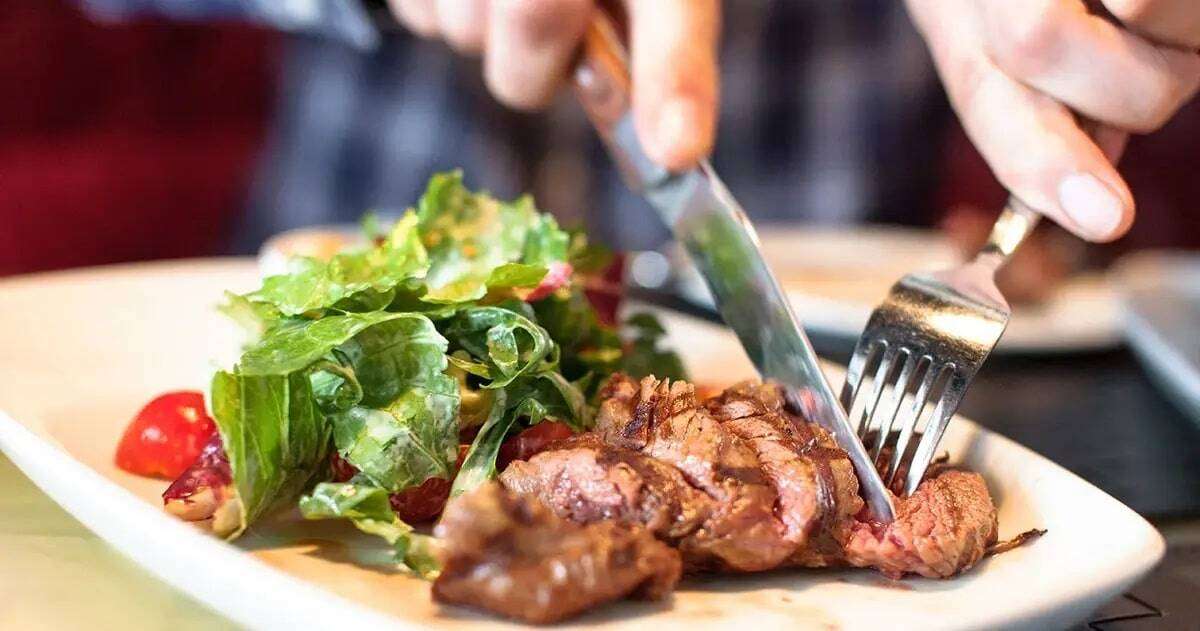
Tips for an active vacation
August 2, 2022
Partnership with Vinilsul
September 7, 2022
Tips for an active vacation
August 2, 2022
Partnership with Vinilsul
September 7, 2022We often think that we are eating healthy, but in reality we are making some mistakes.
DATE: August 2022
AUTHOR: Rui Madeira |Health

RM Trainer leaves here some of these most common mistakes, described by Metropolitan magazine. You may identify with some of them and that these tips can help you improve your diet.
1- Think that fruit is more fattening in the afternoon or evening than in the morning.
A fruit provides the same calories before or after meals. The order in which foods are eaten does not influence total daily calories.However, if consumed before a meal, it will produce greater satiety, as it contains fiber. In this way, you will tend to eat less at meal.
2- Believing that drinking water during a meal makes her absorb twice as much.
Water does not provide calories as it does not contain nutrients. Therefore, it does not gain weight, even if it is taken before, during or after meals.
3- Affirm that all fats are bad.
Until recently, it was believed that fats were bad for your health. However, these play an important role in your body, as among their functions are the proportion of energy and the reduction of cholesterol. That's why you should consume healthy fats such as avocado, walnuts, olive oil and flax or chia seeds.
4- Replace foods with juices and smoothies.
Neither shakes nor juices contain all the nutrients from fruits and vegetables that we need, so we should not follow a diet based only on them. They cannot replace a main meal or be part of an eating pattern per se.
5- Banish gluten because you think it's harmful.
Only people who have been diagnosed with celiac disease, that is, who have intestinal intolerance to this wheat protein, should exclude it from their diets. The phrase "gluten-free" is not synonymous with healthy, remember that many of the products that replace it have higher amounts of sugar and trans fats.
6- Severely restrict foods like carbohydrates.
Fueling your muscles with carbohydrates will help you get through fat loss routines. Your body needs a decent supply of post-workout carbs in order for fat burning to continue for as long as possible. It will also be necessary to replace the glycogen that we lose after exercise.
7- Do not eat vegetables
In general, the tendency is to prepare vegetables almost always stewed and accompanied by fatty foods that greatly increase the caloric value of the vegetable dish you eat. That's why it's associated with the high-calorie legumes themselves. But this is a myth, legumes provide a high percentage of iron, they have a high fiber content, which is essential for optimal digestion. In addition, it lowers cholesterol and promotes glucose control.
8- Use sweetener instead of sugar.
A teaspoon of sugar provides 8 calories for breakfast. A minimal caloric intake compared to the average of 2,000 calories per day of a prototype balanced diet.
9- Compensate (one day I ate too much, the next day I ate too little).
It is best to eat at least four meals, but lighter. The body will thus receive balanced doses of carbohydrates, proteins, fats, minerals and vitamins. This is also the best way to not feel hungry and avoid temptations.
10- Frozen foods are less nutritious than fresh foods.
The freezing process does not change the quality of the food, so frozen fish or meat have the same properties as if they were eaten fresh. Obviously, we must take into account that a good defrosting is carried out.
So, do you identify with some of these topics?
It is natural to make some (or almost all) of these mistakes, as we were not trained in the complex area of Nutrition. We usually do what we read or hear and it makes the most sense to us. The problem is that the more information we look for, the more counter-information we find, which creates chaos in our minds.
In RM Trainer's opinion it's simple, the market knows the vendor, the doctor knows the disease, so the Nutritionist knows the Nutrition.
Do you already know the RM Trainer Nutritionist?
Hippocrates: "Let your food be your medicine."
